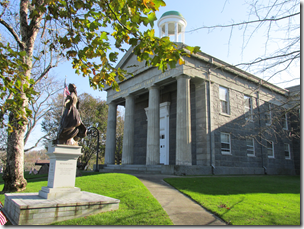Good Cop, Bad Cop is real. And it works.
/Slate’s Aisha Harris and Sharan Shetty attempt to answer the question:
Is the “Good Cop, Bad Cop” Routine a Real Thing?
Their answer:
Not as often as movies and TV shows might make you think. Opinions vary on just how prevalent the tactic is. Joseph Pollini, a retired lieutenant commander, told us that it’s definitely used on occasion. The typical set-up, he said, will have the intimidating “bad” cop first, followed by the more personable “good” cop, who assures the suspect that everything will be “fine.” Maki Haberfeld, a professor of police science at John Jay College of Criminal Justice, says that it’s used “all the time,” mainly by detectives. “When a person is confronted by two individuals, one friendly and one hostile, he or she will ultimately create a much better relationship or zone of comfort with the friendly one,” Haberfeld explains. “Especially if the hostile one is truly threatening.”
From personal experience, I can tell you that this tactic is used by police officers at least some of the time and is surprisingly effective, even when you are fully aware of its existence.
Prior to my arrest and trial for a crime I did not commit, I was questioned three times by police officers from Bourne, Massachusetts. The “bad cop” was an older, larger man who took my initial statement and conducted the preliminary questioning before sending me home to follow-up on my statements.
When I was called back to the police station for a second round of questioning a few days later, a second officer joined us. He was younger, thinner and more personable than the first officer. He smiled. He shook my hand when I entered the room. He offered me a soda. He sat beside me while the “bad cop” sat across a large, steel desk and glared at me. He maintained a calm, even disposition, even seeming to offer me advice and assuring me that he was looking out for my best interest. He placed his hand on my shoulder several times in an effort to calm me.
The “bad cop” raised his voice and berated me for the entire hour. He called me a liar and threatened me with jail time if I did not confess.
I was instantly drawn to this new officer, viewing him as my protector and hanging on his every word. He even encouraged me to leave the police station and think about all that was said. He assured me that I was still a free man. “Maybe you’ll never hear from us again,” he whispered to me as he escorted me to the exit.
A week later, I was asked to return to Bourne for a “quick chat.”
Prior to this third third and final round of questioning, a speed trap was set up on I-495, specifically targeting me. I was pulled over and ticketed for driving 7 miles over the posted speed limit. When I arrived at the police station, the “good cop” took me aside and explained that the speed trap had been set up by the “bad cop” in order to rattle me. He told me that he would do whatever he could to fix my ticket so I didn’t end up in any more trouble than I was already in.
The “bad cop” was even more agitated during this final round of questioning. He shouted. He threatened me with a long prison sentence. He made claims that were not true. When I asked to be left alone to think, the “bad cop” shoved me into a closet and closed the door. I stood in dark, my feet in a mop sink, pondering my future.
When I emerged from the closet a few minutes later, I informed the officers that I was innocent and refused to confess to a crime I did not commit. The “bad cop” immediately placed me under arrest. He fingerprinted me, completed the necessary paperwork and handcuffed me before leading me to the cruiser for transport to the courthouse. Throughout this entire process, he described what would happen to me in prison in great detail and warned me that the only way to avoid a long prison sentence would be to confess.
The “good cop” drove me to the courthouse and removed my handcuffs before leading me inside. He told me that he would wait until my arraignment was completed before driving me back to the Bourne police station and my car, which was more than 20 miles away in Barnstable, MA. He suggested that I wait to make any phone call until after the arraignment, in case “things go bad with the judge.”
Before depositing me in the holding cell, he told me that the only way he could help me was for me to confess. I assured him once again that I had done nothing wrong.
He locked me up and left. I never saw him again until the day of my trial. He did not wait to transport me back to Bourne. He did not ensure that I received my phone call. After my arraignment, I slunk out of the courthouse into a strange town with not a penny to my name.
Eventually I found a payphone, made a collect call and was picked up two hours later by a friend.
I was charged with grand larceny. Had I actually been guilty of the crime, I am fairly certain that the “good cop” would have coaxed a confession out of me. He nearly had me convinced to confess to something that I did not do.
Good cop/bad cop works. Particularly when the accused is stupid enough to believe that his innocence mitigates the need for an attorney.

